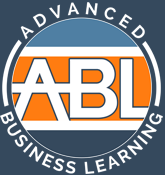CERTIFICATION COURSE LIST
Sales Effectiveness
 Challenges
Challenges
Vital to creating business value for the customer and profitable opportunities for the selling organization, is a requisite for competing effectively in today’s market. Salespeople must be seen by clients as true business advisors, setting them apart from the competition.
ABL’s Offerings
The Versatile Salesperson -People are most likely to buy from those they are most comfortable with. In fact, studies show that salespeople who can adjust their selling styles to customers’ buying styles enjoy up to a 30 percent win-rate advantage. This offering gives salespeople the interpersonal awareness necessary to strike a chord with customers – and get more wins.
Leadership Effectiveness
 Challenges
Challenges
Today’s employees don’t respond to a manager who gives direction, but rather commit to a leader who asks for their help in setting direction. Smart organizations create an environment of shared accountability and partnership between leaders and employees.
Meeting Leadership Challenges offers insights into the many challenges managers face as effective leaders. Participants learn about the responsibility and accountability inherent to leadership positions, explore the many nuances around leading people in today’s dynamic workplace, and examine the leadership needs of their associates to create a work environment that ensures both performance and long-term fulfillment.
Customer Service and Call Center Efficacy
 Challenges
Challenges
The definition of customer service in the 21st century has changed: It is no longer about Satisfaction; it is about Engagement, it is about Exceeding Expectations. Organizations are looking for something sustainable that can support business success and meet their full potential. Today’s customers have more options and choices than in the past. In addition, customers have more access to information and comparisons, and greater knowledge of their options. Customers are more informed than ever. As a result, there is an escalating set of customer expectations. As these changes come faster and faster, businesses in every sector are finding it more difficult to achieve differentiation through product or price.
ABL’s Approach
We work with our customers to focus on differentiating themselves on their service to customers. This “branding” of the total customer experience goes further than just meeting needs and expectations. The key to success requires that organizations engage customers to a higher degree than ever before.
Individual Effectiveness and Efficiency
 Challenges
Challenges
Organizations constantly struggle to develop methods to help employees stay motivated and engaged so results are consistently high. Most managers “believe” it is there job to motivate others. In fact, and widely misunderstood, it is the individual who ultimately determines their own motivation. Managers can only influence the conditions under which they are more likely to be motivated and apply newly acquired skills over the long term.
ABL’s Approach
The research is compelling… the success of any learning initiative rests with the leaders of the organization. When individual contributor training is combined with manager training, results are astounding! Studies show that during a quarter in which managers and employees received training, there was an immediate increase in productivity of about 24%, a 57% increase over the improvement for employee training alone.
ABL’s Approach
To succeed, leaders must engage their people in ways that keep everyone aligned and focused on objectives and mission.
Today’s employees don’t respond to a manager who gives direction, but rather commit to a leader who asks for their help in setting direction. Smart organizations create an environment of shared accountability and partnership between leaders and employees.
Leading for Growth
Teaches leaders how to build a cohesive, shared-responsibility team with a common vision that guides strategy implementation. This program challenges managers to rethink their roles as leaders, shifting from traditional “heroic” managers to growth leaders who fully develop their employees’ potential to achieve business results.
Working Styles
Offers insights into the many challenges managers face as effective leaders. Participants learn about the responsibility and accountability inherent to leadership positions, explore the many nuances around leading people in today’s dynamic workplace, and examine the leadership needs of their associates to create a work environment that ensures both performance and long-term fulfillment.
Setting Goals for Success
Offers leaders proven interpersonal versatility skills for identifying the various Social Styles in the workplace, then adapting their own behavior to work more effectively with direct reports and other coworkers. There is great value in the diversity of people and their Social Style preferences and it is these very differences that are so critical to individual effectiveness and organizational productivity.
Coaching for Performance
Provides managers with perspectives and skills associated with setting goals for associates. Successful goal setting is a shared responsibility that ensures alignment between the individual and the organization. Participants explore proven goal-setting processes, best practices for linking goals to strategy execution, and the importance of setting goals that address both performance and fulfillment considerations.

Reviewing Performance
offers managers invaluable insights into what constitutes an effective employee performance review. A successful performance review process ensures shared responsibility for feedback and development. Participants examine “good” and “bad” performance review processes, explore best practices for conducting performance reviews and practice what they’ve learned using various true-to-life exercises and role-plays.
Managing Conflict
offers leaders specific skills for addressing conflict using a collaborative, win-win approach. People who don’t manage conflict well not only experience the negative aspects of destructive conflict, but also fail to reap the creative benefits of constructive conflict. Key competencies include: the ability to quickly identify sources of conflict so it can be prevented or addressed; the skills to address conflict constructively; the ability to identify common reactions to conflict and deal with them constructively; and the communication skills to manage conflict most effectively.
Motivating for Results
offers invaluable insights into the creation of a work environment in which associates consistently put forth their best efforts to succeed. Motivation is a critical element to successful performance. Leaders learn to influence motivation by defining the issue, instilling confidence, linking benefits to success, and ensuring value.

Delegating with Confidence
offers invaluable insights into how to delegate the right tasks and the right level of responsibility to the right associates to maximize involvement and productivity. Participants learn that skillful delegation is essential to creating an environment where people can achieve significant results with fewer resources. Leaders learn how to delegate responsibility appropriately, even while remaining ultimately accountable for the outcome.
Communicating with Purpose
Without effective communication, all other leadership skills do not matter. Leaders must communicate effectively with employees to ensure work groups remain aligned with corporate and departmental strategies. Leaders learn to communicate effectively with employees to ensure work groups remain aligned with corporate and departmental strategies; avoid poor listening skills and sending unclear messages to their employees.

Building High Performance Teams
Getting work done through teams is a fundamental task of leaders today. Getting team members to align, engage, and give their best can be a critical success factor. First-line and mid-level managers need skills to help move their teams from functioning merely as a collection of individuals to performing together as a team at a high level. In this program, leaders explore participative leadership and shared responsibility, as key characteristics required for developing teams.
Creating a Culture of Engagement
Leaders are the stewards of organizational energy. At ABL we believe the purpose of a leader is to engage others in committing their full energy to create value and success. Creating a Culture of Engagement is a process facilitated session that is a highly interactive experience where leaders learn how to increase employee engagement and strengthen teams leading to tangible business results. It is a hands-on, process-oriented, action learning session.

Leading in Changing Times
Change in today’s organization is not the exception, but the rule. Implementing new strategies to succeed in today’s challenging environment requires people to contribute the full force of their discretionary energy, to see “change” as a benefit and to embrace their role in executing ongoing change for the betterment of the organization and themselves. However, employees often need help to see change in positive, energizing terms. The purpose of this program is to teach leaders how to motivate and inspire their employees and co-workers to contribute fully to implementing the organization’s strategy.
